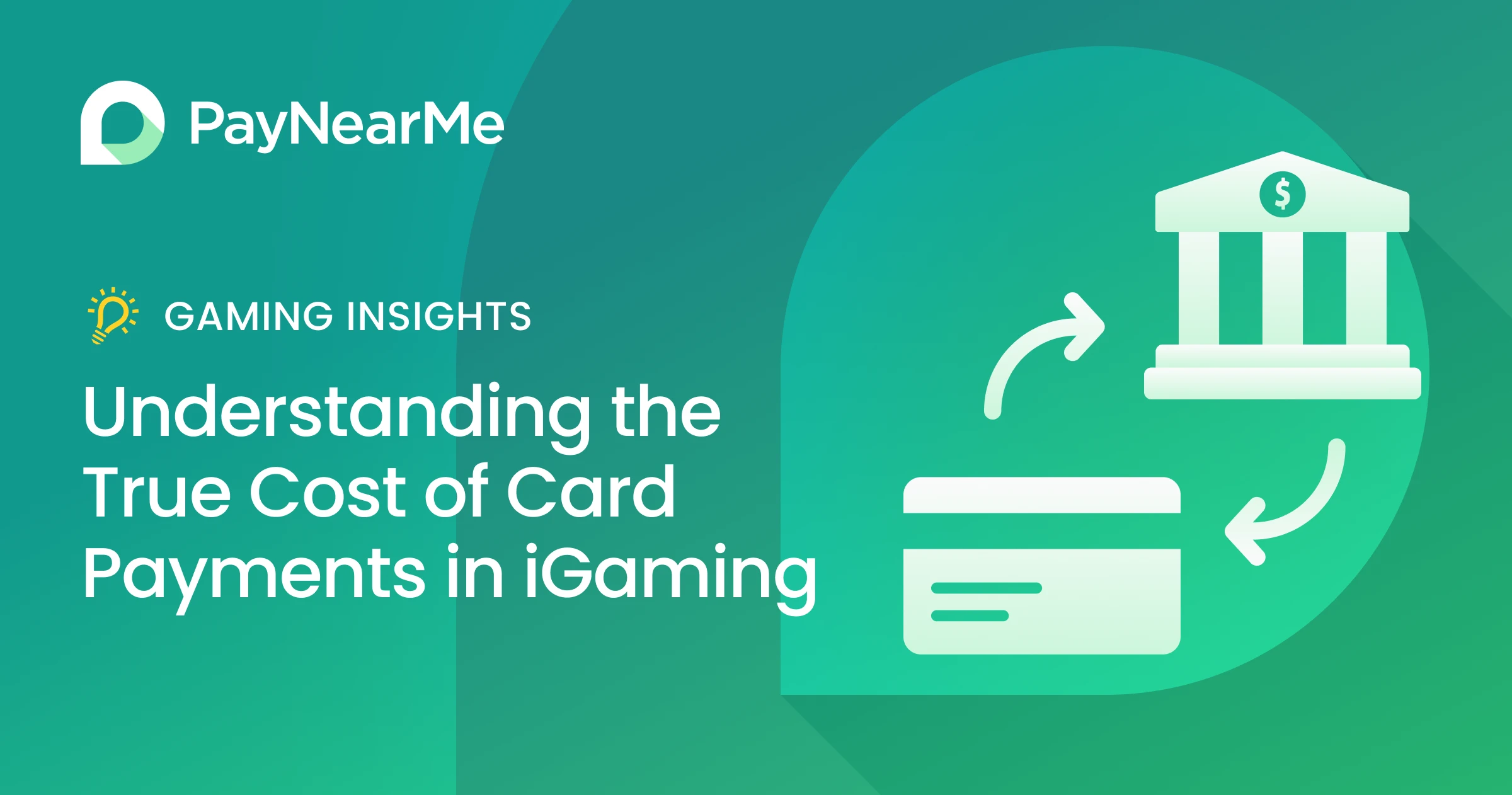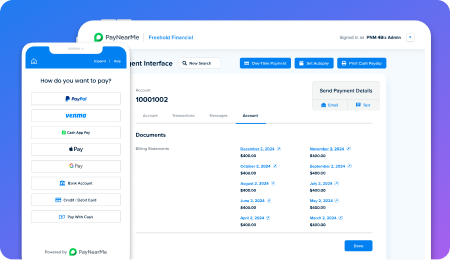The True Cost of Accepting iGaming Card Payments

Americans love payment cards. In the Federal Reserve’s Diary of Payment Choice, credit and debit cards dominate other major payment types by a considerable margin, accounting for 66% of all transactions made. Cards tend to be a simple, practical and reliable form of payment for most industries.
But unlike ecommerce and bill pay merchants, iGaming operators have had a murky relationship with card transactions. Even after legalization in many states, some issuing banks have been hesitant to allow card payments for online, real money gaming transactions. Operators have had to adapt by adopting a diverse set of alternative payment methods, specialty wallets and guaranteed ACH products to fill the gap.
This makes it difficult for many operators to understand two fundamental questions that all businesses must answer: what is the true cost of accepting card payments, and what can be done to manage this cost?
The state of card acceptance post-PASPA
Sharing the impact of the PASPA repeal with operators is like telling an NBA fan about the effect of legal zone defense on Shaq’s dominance. Everyone knows what happened, and yet its importance can’t be understated.
It’s hard to find an example of another industry skyrocketing into the mainstream like OSB did after the Supreme Court overturned the Professional and Amateur Sports Protection Act of 1992 (PASPA), ushering in a wave of legal betting opportunities for tens of millions of Americans in only a few short years. Unfortunately, banking and finance don’t work quite as quickly, and many sports betting enthusiasts were met with unexplained card declines when trying to deposit in their app of choice.
Frequent declines gave payment cards a negative reputation amongst sports bettors—a consequence that persists to this day. For example, search on Google about card acceptance in iGaming and you’ll see stats in publications like NerdWallet that state “about half of Visa and Mastercard transactions are declined because the credit card issuers, including many large banks, simply won’t process gambling transactions”.
The truth is that card acceptance is in a much healthier state in 2023 than it was five years ago. Proprietary sources show that over the past 12 months, card acceptance rates for MCC 7801 (the main category for U.S. iGaming and sports betting transactions) sit at a healthy 87%. Filter for debit and prepaid cards only and this rate jumps to 89%.
Still, this leaves many operators dealing with double-digit decline rates for card transactions. Research conducted by PayNearMe in 2022 showed that declines are a frequent and deterring issue for bettors, with 52% stating they’ve experienced declines when signing up for a new betting app.
In an industry with notoriously high competition and slim margins, every single percentage point is critical to succeeding in a new state. Understanding how this relates to the total cost of acceptance and discovering ways to optimize around these constraints can make a meaningful difference to the bottom line.
Factors influencing the total cost of card acceptance
The most prominent cost of card acceptance is one that all operators must bear—interchange rates. These are determined by card networks and other participants in the payments value chain, and are mostly a fixed cost. Other parties (like gateways, processors or service providers) often add a small rate on top of this in exchange for facilitating payments and offering value added services to operators.
In many cases, this is the final number that operators shop around for, trying to slice off basis points in an effort to secure as much margin as possible. However, this approach ignores many of the soft (and sometimes hard) costs that can dramatically impact the true cost of a card payment.
After a declined payment, 27% of bettors would try the same deposit method again.
Card declines continue to be a burden for operators. A card decline often has a hard cost associated with it, which can be a significant multiple of the cost of a successful transaction. Many declines come directly from the cardholder’s issuing bank, with many notable financial institutions still refusing to allow card payments for 7800-series transactions.
There are other reasons for declines that fall within the control of operators. For example, strict fraud rules can be a major contributing factor to consider. Operators must walk a tightrope here, fine-tuning fraud prevention rules that deter bad actors while not rejecting too many legitimate transactions. This responsibility is often shared with the operator’s payment processing partner and their ability to analyze and act on payments data over time.
There is also the risk of multiple declines for a single deposit attempt, which can multiply the cost of a decline. PayNearMe research showed that after a declined payment, 27% of bettors would try the same deposit method again—creating additional decline costs and a poor user experience.
Much more difficult to analyze are the soft costs of non-acceptance, which can range from labor costs to opportunity costs. For example, in the same research cited above, 17% of online bettors said that a declined payment would cause them to leave the operator’s site and not return. Factor in the cost of acquiring each customer and their lifetime value, and suddenly non-acceptance can have a disproportionate effect on the total cost of acceptance.
Staffing costs can come into play as well. For example, how many hours does a compliance and risk employee spend fighting chargeback disputes or processing declines? The time spent doing these activities has a real business impact, as these employees are then pulled off of other tasks.
17% of online bettors said that a declined payment would cause them to leave the operator’s site and not return.
Finally, consider the effect of downtime on the bottom line. Sports betting is especially sensitive to spikes in volume, as many bets are driven by time-sensitive, highly popular events (like the Big Game in February, the Big March Tournament, the first of the Big Three horse races, and several other trademarked games that shall not be named.) A few minutes of downtime can lead to thousands of preventable declines.
Reducing the cost of card acceptance with the right processor
Fortunately, operators can work with their card processor to offset many of the costs listed above. Choosing the right payments partner becomes a critical decision, and evaluating based on value-added services can be a significant differentiating factor.
When evaluating card processing partners, consider the following.
- Experience in the iGaming space. There are hundreds of reputable card processing firms in the U.S., but very few with extensive experience in the iGaming industry. Look for a partner familiar with processing 7800-series transactions, and make sure they have the compliance, risk, technology and reliability chops to ensure you maximize controllable factors that influence card acceptance.
- A focus on data. To help mitigate controllable declines, operators must first understand why declines are happening. The right processor will pass through detailed decline codes from the card networks, helping you understand why cards are being declined and what you can do next. These reasons should also be translated and passed to consumers to avoid confusion and prevent “double declines”.
- Proven reliability. Every minute of downtime, especially during betting surges around timely events, can be wildly expensive for operators. Working with a processor with exceptional scale, redundant processing, multiple distributed data centers and clear failover/switch protocols and monitoring is crucial for reducing the impact of downtime.
- Player-oriented UX. In the cases where a decline can’t be prevented (such as the issuing bank declining the transaction), it’s important that your processor offers ways to promote a second chance deposit. For example, can the processor offer an elegant retry that suggests an alternative payment type while pre-filling deposit information?
Trust the PayNearMe platform for iGaming payments
PayNearMe’s platform for iGaming gives operators a complete deposit and withdrawal solution that simplifies payments, reduces the cost of acceptance and improves the player payment experience.
To learn more, contact our team or view an on-demand demo of the platform.



